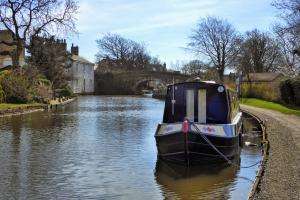New care accommodation standards won't keep 16-17-year-olds safe

Published by Professional Social Work magazine, 12 April, 2023
New Ofsted-inspected standards to regulate accommodation for 16 and 17-year-olds living on their own in care will not stop them being placed in unsafe settings, campaigners say.
The standards come in wake of increasing concern over looked after children placed in unregulated independent or semi-independent accommodation, sometimes in caravans, boats and barges.
A ban on placing children aged 15 or younger in such settings came into force in September 2021, meaning they now have to provide the same care as children’s homes.
But instead of doing likewise for 16 and 17-year-olds, the government launched a consultation on a new set of standards to regulate accommodation for older teenagers. It published its response last month ahead of new regulations due imminently.
Minister for children, families and wellbeing Claire Coutinho said: “We need enough of the right homes for children and young people in the right places to help them flourish into adulthood.
“In most cases this will be living in a children’s home or with a foster carer. However, for some older looked after children and care leavers aged 16 and 17, a place to live with more independence and high-quality support might be the best option to meet their needs.”
She maintained mandatory national standards backed by Ofsted registration and regulation will “drive up the quality and consistency of supported accommodation”.
But BASW England claimed the lack of legal entitlement to ‘care’ for older teenagers is “tantamount to institutional neglect”.
It said: “There are currently over 7,000 children of this age living in unregulated accommodation such as adult homeless shelters, caravans and bedsits.
“At least 34 children this age have died over the past six years in this type of accommodation. The government decision to outlaw these settings for children 15 and under in September 2021 was met by significant criticism, given the fact this arbitrarily discriminates against children 16 and 17 who face similar risks.
“It is discriminatory and wrong to deprive a child of care – no good parent would arbitrarily stop caring for their child once they reached 16.”
Children’s care charity Become claimed the proposals are “not in young people’s best interests”.
It added: “Creating a set of separate national standards will further formalise a ‘two-tier’ care system, with older children in semi-independent and independent settings still not guaranteed the ‘care’ they need.
“The government claims that the use of this sort of accommodation for 16 and 17-year-olds is a helpful step towards independence, but the evidence suggests this is not how it’s being used for many young people including those seeking asylum and those who have only recently come into care, who typically need more, not less support.”
The charity is calling for the inclusion of semi-independent care settings within the quality standards for children’s homes “with modifications where required”.
A survey of 16-17-year-olds living in care by children’s rights charity Article 39 published earlier this year found a desire for continuing care.
Asked for their top three priorities, they said “consistent support, not being abandoned at 16” carers who are good, caring role models and “having someone there for support and advice”.
Under the government’s proposals, mobile homes such as caravans, boats and barges, are not banned under the measures, despite calls from campaigners.
In its consultation response, the government said “in very rare and exceptional circumstances such settings might be appropriate to meet the needs of a young person”.
Providers must be registered with Ofsted, or have submitted a full registration application, by 28 October, under the new regime.
The government is providing £123 million to local authorities over the next three years to support the changes.
